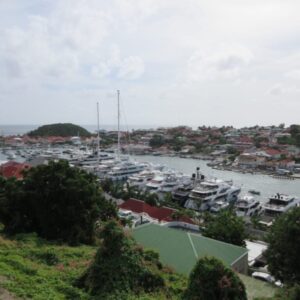IS IT DOLLARS OR NOTHING FOR ST. MAARTEN?
Is it Dollars or Nothing for St. Maarten?
As it seems, many are sitting on the fence as it relates to dollarizing the St. Maarten economy. The Social Economic Council (SER) has taken a strong position calling for “immediate steps” to be taken for an orderly transition to the circulation of the United States Dollar (USD) as the official currency in St. Maarten. The Dutch Caribbean Country St. Maarten currently uses the Netherlands Antilles Guilder (ANG) as its official currency.
The reluctance in some sectors in the community to take an active stance baffles outsiders, who ask why the business community isn’t demanding this change. Even after SER released their follow-up advice on dollarization there is still deafening silence from in the country.
That advice from SER comes as reports surface of the mounting current account deficit of the joint monetary union of Curaçao and St. Maarten reported by the Central Bank of Curaçao and St. Maarten (CBCS). This deficit is primarily caused by Curaçao.
The SER advice, published on November 22nd, 2013, in the National Gazette, also urges government to take measures to avoid any negative price effects on consumer goods from the elimination of the Netherlands Antilles guilder.
From the point of view of risk aversion, SER emphasized that a well-prepared and organized move to dollarization “will probably take at least a full year.”
Government also has to “accept compliance” with fiscal rules and benchmarks. Those include rules and benchmarks implemented by the Committee for Financial Supervision CFT and measures to compensate for the loss of seigniorage and licence fee revenues. Government must find ways for the maintenance of sufficient reserves in the event of external shocks as this is among the central concerns in the new dollarized situation.
In the CBCS report, “Is Dollarization the Right Approach?” the banks makes the case for dollarization. The report concludes, “Dollarization is a viable alternative monetary system for Curaçao and St. Maarten, as it eliminates the balance of payments risk. Hence in our case, dollarization is not a prescription for inflation but a measure to protectus from perils and promote sound and sustainable economic growth.”
Conventional wisdom is that countries dollarize to restore monetary stability and to impose fiscal discipline. However, the lessons learnt from the 2008 great recession have served to drive home the fact that St. Maarten and Curaçao are susceptible to other kinds of risks including balance of payments risk and supervisory risks, according to Central Bank President, Emsley Tromp.
Now the onus is on St. Maarten authorities to get the ball rolling, but some support from the wider community will definitely help fuel the dollarization movement.




